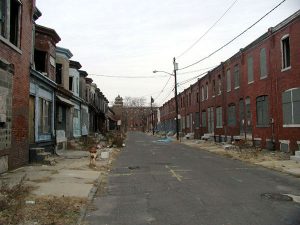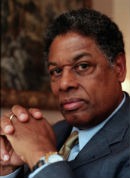 The political left keeps announcing, as if it is a new breakthrough discovery of theirs, that life is unfair.
The political left keeps announcing, as if it is a new breakthrough discovery of theirs, that life is unfair.
Have they never read Thomas Gray’s “Elegy Written in a Country Churchyard,” more than two and a half centuries ago? What about economic historian David S. Landes’ statement: “The world has never been a level playing field”?
In the joint autobiography of Milton Friedman and his wife Rose, they say: “Everywhere in the world there are gross inequities of income and wealth. They offend most of us. Few can fail to be moved by the contrast between the luxury enjoyed by some and the grinding poverty suffered by others.”
Moreover, Professor Friedman left behind a foundation dedicated to promoting school choice, so that disadvantaged children could get a better education for a better chance in life.
What is it that the political left is saying that they think is so new, such a breakthrough and such a necessity for progress? More important, what test of evidence — if any — have they ever subjected their notions to?
No one has presented the social vision of the left more often than Nicholas Kristof of the New York Times — and no one has been more certain that those who do not happen to share his vision “just don’t get it,” as he has repeatedly declared.
Mr. Kristof’s essay “Growing Up Poor in America” in the October 30th New York Times is a classic example of the mindset of the left.
It begins with the story of a poor black teenager in Arkansas, being raised by a single mom. Sometimes he goes hungry and his home does not have even one book. But it does have television sets with huge screens, and apparently there is money enough to buy marijuana.
Surely we can all agree that this young fellow has very unpromising future prospects ahead of him, and that this is a human tragedy. The circumstances of his life are unfair to him and none of us would want to be born into such circumstances. Moreover, he is just one of many who are brought up in a setting that is full of dangers and with a low probability of improvement.
But that is not enough for Mr. Kristof or for the political left in general. Of such youngsters he says, “as a society, we fail them long before they fail us.”
Whoa! Just when did “society” make the decisions and engage in the actions that have led to this teenager being in the bad situation he is in? And just when did “society” acquire either the omniscience or the omnipotence to prevent it?
When the left says “society” they usually mean government. That is apparently what “society” means in this case, for Kristof laments that this teenager is “the kind of person whom America’s presidential candidates just don’t talk about.”
If the left chooses to believe that government intervention is the answer to such tragedies, that is their right. But, if they expect the rest of us to share that belief, surely they could subject that belief to some empirical test. But we can, however.
The 1960s were the triumphant decade of those who wanted government intervention to “solve” what they called “social problems.” How did that work out? What were things like before this social vision triumphed? And what were things like afterwards?
Homicide victimization rates among black males were going down substantially in the 1940s and the 1950s. But homicide victimization rates reversed and skyrocketed in the 1960s, wiping out all the progress of the two previous decades.
When the 1960s began, most black children were born into families with both a mother and a father. After the great welfare state expansion during the 1960s, most black children were born to a single mother, like the youngster in Arkansas today.
Kristof’s essay also mentions a teenage girl who is a single mother, and suggests that “sex education” could have prevented her from getting pregnant. Teenage pregnancy was going down — repeat, DOWN — during the 1950s. It reversed and shot up after the 1960s began bringing the “sex education” vision into schools across the country.
Very similar trends occurred in England, after very similar visions and policies also triumphed there in the 1960s. Perhaps it is the left that just doesn’t get it — or cannot face the hard fact that its own vision and policies worsened the very things they claimed would be made better.
COPYRIGHT 2016 CREATORS.COM
Photo credit: AEI
 Thomas Sowell is a senior fellow at the Hoover Institution, Stanford University. Visit his site at www.tsowell.com.
Thomas Sowell is a senior fellow at the Hoover Institution, Stanford University. Visit his site at www.tsowell.com.
The views expressed in opinion articles are solely those of the author and are not necessarily either shared or endorsed by Black Community News.
 CURE News and Clergy Blog News and Commentary for Christians
CURE News and Clergy Blog News and Commentary for Christians




George Washington Carver, Martin Luther King, and many more ground breaking black Americans changed the world in their life spans without the “government plantation.” They did not blame others when their efforts did not produce the results they wanted. Instead, they analyzed their efforts and tried again. Over and over again! Unfortunately, we have now raised decades of black, white, and brown children who expect the government to take care of them. Instead, they did what they could with what they had and built on the outcome.
There is a cartoon going around which shows an American Indian. The caption reads, “If you think the government will take care of you, ask a Native American how that’s worked out for them.”
If there is a notion that the left, and more specifically Democrats, want to reduce poverty. That is wrong.
The Democrat Party cannot survive without a large and growing class of poor people.
Accordingly, their anti-poverty policy nostrums are always seemingly failures, but in reality the failure of those policies is the desired outcome. Democrats eschew a prosperous nation because a prosperous nations renders
Democrats pointless. Rather than Democrats, we need leaders who embrace abundance and harmony as much as we ordinary Americans do.